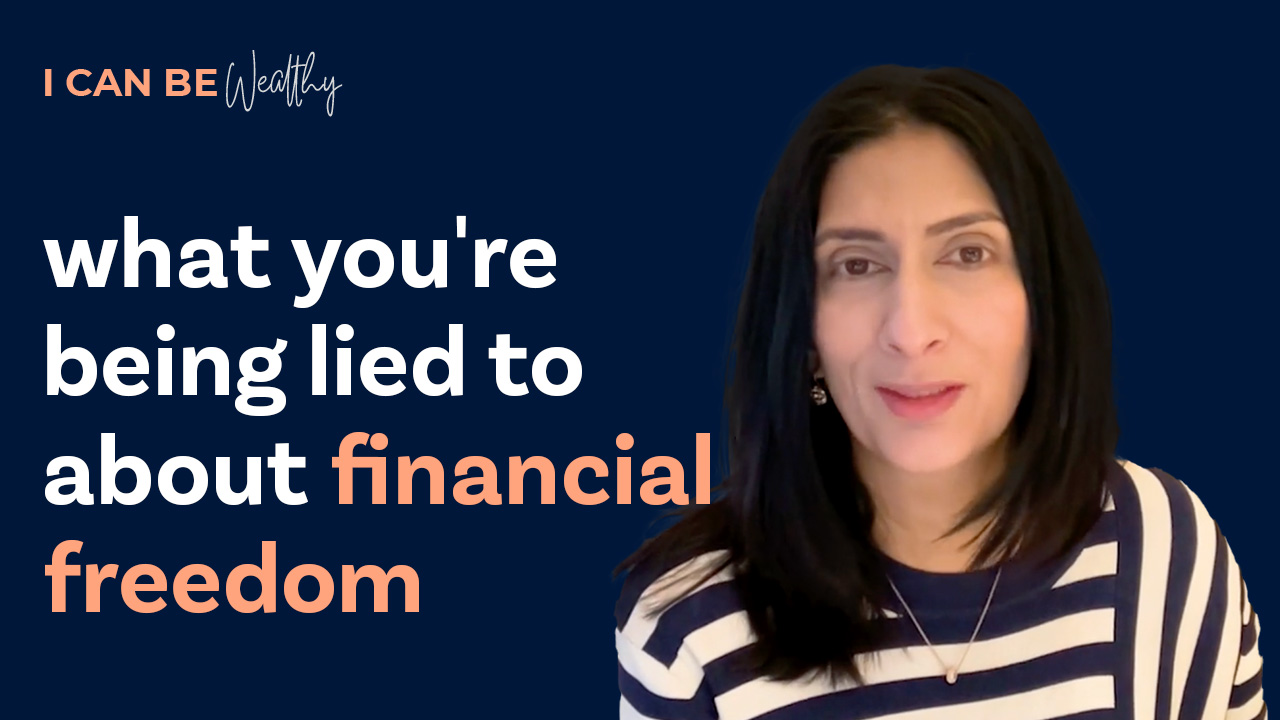Private Funds Are the Holy Grail of Strategies
I want to start by talking about what private funds have meant to me personally. They have truly been the Holy Grail of strategies to discover, and one of my favourite strategies now.
In essence, what accessing private funds has allowed me to do is tap into really premium opportunities – but with a huge “sleep at night” factor.
I’ve got trusted advisors or dealmakers who are running those funds for me that are extensively experienced and have a proven track record. I know, like and trust them and they give me a high level of control.
There’s excellent communication, but there’s absolutely no way that I, as an individual investor, would be able to tap into even a fraction of the quality of deals that they are getting across their desk on a daily basis.
I guess first and foremost, what I love about private funds is that I’m tapping into a calibre of deal flow consistently and I don’t have to do anything for it.
So if you’re someone who doesn’t necessarily want to participate in the day-to-day vetting and management of deals, and you just want simple reporting and that money to just turn up like clockwork in your bank account, then private funds are really an awesome strategy to be involved with.
Private Funds Vs Real Estate Investment Trusts
If I were to describe from a mechanics point of view what the essence of a private fund is and how it distinguishes itself from something like a real estate investment trust (REIT) or a hedge fund, what’s really important to understand is not necessarily the structure of it, but what kinds of deals are available to both.
Private funds are essentially where a group of investors pull their money with a particular deal maker and then that deal maker distributes or allocates capital across a series of separate investments. Depending on the mandate or the purpose of the fund, it could be houses, unit complexes, self-storage facilities, business lending – it could be any combination of a whole bunch of things.
The difference between what I call private funds and what you see on the Stock Exchange as real estate investment trusts, because you could argue that the same principles apply there, is that these private funds are much smaller vehicles.
They are run by individuals or teams who are looking for opportunities in the market to create alpha, meaning a much bigger return than what is available to either individual investors at one end or the real estate investment trusts.
The thing to understand is when you’re a hedge fund or a real estate investment trust, you’ve often got hundreds of millions of dollars that need to be invested or deployed into specific deals, and what I’ve witnessed when I look at the way that these real estate investment trusts operate is they have no choice but to acquire very, very large assets.
And when I look at the sorts of returns that they are getting on those assets, often they are quite compressed; they’re buying premium assets, no question, but with a very compressed return.
So if you look at the sorts of returns that you get with real estate investment trusts, frankly, they’re not setting the world on fire, and they’ve varied from somewhere around the 4-6% mark, so that’s OK. It’s better than having it sit in a bank.
What makes me really excited about private funds is dependent on the fund that you’re talking about. It’s very easy to get returns of anywhere from, say 8-22% net after expenses, and the reason that those returns are available is that these fund managers are accessing a section of the market that’s probably slightly out of the reach of individual investors, but just too small for those big hedge funds and real estate investment trusts.
So it’s definitely a market that I would say is very inefficient. This is probably true of all of my alternative strategies, but specifically for private funds. What they’re trying to do is tap into a fairly inefficient market in order to get these amazing returns.
If you think about a real estate investment trust, there are higher levels of compliance and regulation. They’ve got that bigger lump sum of capital to deploy and they do have to compromise on their returns. They overlook those smaller deals and a change in the unit prices is how you get paid.
The thing about private funds is, they’re really only known about in smaller circles. Depending on the deal maker and the management team, they themselves can be quite fussy about who they let in as investors.
Salena’s Experience with Private Funds
Some of the funds that I’ve participated in carved the structure into 99 or 100 pieces so they can only have 100 investors. That doesn’t sound like a lot of people, but it’s a reasonable amount of people.
And they want a relationship with each of those investors. They want to know that they’re not going to have people who are difficult to deal with.
Because they are dealing with a smaller amount of capital, their ability to chase these smaller, more lucrative deals is really, really far greater than some of those bigger REIT fund managers.
They have much more targeted methods of finding assets, and unlike a publicly-traded real estate investment, they trust me as the investor. I have a direct line of communication with the fund manager which obviously I wouldn’t have if I was buying something from a publicly-traded market.
What makes this really different to a lot of the other strategies is that you’ve got that real diversified approach to asset acquisition. So even if you’re all-in on one particular type of asset, say for example self-storage, you could be buying:
- across different geographies,
- across different sized assets,
- assets in that niche which have different levels of liquidity,
- assets that need virtually no work, or some where there might be improvements.
So it’s really important to understand that small, private funds are really about multiple assets rather than just the one, unlike, say, a syndication where a group of investors put their money with a deal maker and the focus is on the purchase and improvement of a single asset.
Why You Should Consider Private Funds
These sorts of funds are an awesome way to get to know a new market that maybe you don’t have familiarity with. If you are an investor and you like the idea of being diversified across a series of assets, then private funds are a great choice.
When we’re talking alternative, it’s the hands-free investing model. We’re saying that we don’t want involvement in the day-to-day management of those assets, but we like having that direct line of communication with the asset manager.
If you have no time, then these private funds are an awesome way of developing passive income with very little work on your part – apart from obviously doing your due diligence when you first make that choice.
When you’ve reached an acceptable level of capital base and you want to start turning that dial towards more passive income, then private funds are pretty much hands down one of the most popular strategies inside of my mastermind.
Examples of Private Fund Deals
I have a good friend who is one of the most exceptional small private fund managers that I’ve ever met. At one point he was an international chess coach, to give you an idea of how he thinks.
What’s really exciting about the way that this guy runs his fund is, he’s really great at articulating his methodology for choosing assets. He has what he calls the four quadrants, and he’s constantly talking about how assets fit into one of these four quadrants or one of these four buckets.
So what I love about the way that he runs his fund is, there’s a high level of transparency. He’s very clear on the fact that investors get paid first, for example, an 8% preferred return. Everything above that gets split either 90% to the investor, 10% to him, or 80% to the investor, 20% to him, or whatever.
It’s all just very nicely mapped out, and unlike your typical managed funds or your traditional financial products where fund managers get paid no matter what, it’s not necessarily performance-based. If there’s one person that never loses out in those sorts of deals, it’s the fund manager.
Key Characteristics of Private Funds
In private funds, one of the key distinguishing characteristics is that the better funds will always say, “Investor gets paid first, I get paid after that.”
There might be a nominal acquisition fee where assets are required because there’s a lot of time and effort that goes into that due diligence, but the fees they make are a fraction of what you would see in a traditional, even superannuation fund, to be frank.
The way that the fund is managed is from a place of transparency. There is regular performance reporting of how assets that have been previously acquired are doing, where they are in their lifecycle and what’s happening to them.
So depending on the level of involvement that you want as an investor, you could basically ignore all of that and just watch your bank account and your statements and see what’s happening.
You get to:
- participate at the cold face,
- understand how decisions are being made,
- watch over the shoulder as projects unfold,
- look down the barrel of what’s coming up, and
- determine what kinds of strategies are working.
What to Look for When Working with a Private Fund Manager
Most of the guys that I know who become dealmakers in private funds are expert, world-class investors. And all the ones I know are independently financially.
After a point in time, once you have financial independence, your mind has to turn to purpose. And these guys love the play of money. They recognise that they’re helping others. They are all about, “How can I be of service?”
One of the side benefits of being a participant in these private funds is, it’s a way to uplevel your own knowledge and education around money and wealth. But one of the side benefits that I sometimes forget about because I take it for granted is: these guys are really good at interpreting economic data.
And this particular fund manager that I’m thinking of will regularly do what he calls market updates and he will share some of the key economic metrics globally and also in his own market so that you get insight into how he is thinking about what to invest in in the future.
Inflationary rates and what is happening to wage growth and all those sorts of things can actually help shape his investment decision-making for at least the next 6 to 12 months ahead.
So it’s a really important quality, I believe, for these fund managers to be well versed economically. As investors, we’re riding the coattails because we’re getting early inside information on what we should be thinking about when we, not only participate in their fund but also our own investments more broadly.
- How should we be thinking?
- What are the ripples in the economy that we need to be mindful of and should be worried about?
- How do we adapt our portfolio over time to navigate turbulence?
- How do we deal with economic uncertainty?
Particularly in the private fund model, but also in my dealmakers and trusted advisors in the other strategies – that ear to the ground capacity to hear tremors months, if not years, before others is really the inside information that will set you apart from other investors.
I know I’m kind of digressing there, but I really wanted to drive home that this is really one of the things that I am most attracted to when I’m thinking about working with a particular private fund manager.
What is a Diversified Income Fund?
In terms of a sample deal, I’m going to discuss one of the funds that this friend of mine runs.
It is a diversified income fund, and the types of deals that get done in this sort of fund are:
- lending deals,
- being the bank,
- fix and flip projects to a small degree,
- commercial debt,
- distressed commercial debt,
- multifamily,
- self-storage,
- residential portfolios,
- mixed-use.
The sort of projected returns in this case can be anywhere from 8-16% net to investors.
The preferred return on that particular fund is 7%, meaning the first 7% earned by the fund each year goes to the investor.
The management fee is about 2%, and then there’s a performance split, meaning that everything above that 7% return are A units, B units, and C units. The A units will earn 80% of all of the returns above that 7%. The B units earn 70%, and the C units earn 60%. Distributions are quarterly.
Income Funds Vs Capital Funds
As I come back to the title of this podcast, which is the three types of private funds, what I really want to distinguish at a high level is that you can have funds that are income funds, and at the other end of the spectrum, you can have funds that are growth funds.
The mandate for the growth funds is not so much to deliver regular cash flow, but it’s an asset improvement play where over a period of anywhere from 2-10 years, but typically 3-5, they will acquire a series of assets and move them through some kind of project lifecycle to force the appreciation to create a higher value, or sell or refinance them.
So, the income funds are about deals that produce regular income. On the other end, you’ve got these capital funds or growth funds, which are all about creating forced appreciation in assets.
And I want to really emphasise forced appreciation for those of you who haven’t heard me talk about that before. In the space of alternative, I love that these dealmakers know how to make money – whether the market goes up, down or sideways, unlike traditional investing where we are banking on a rising market.
With these growth funds, it’s not that they’re sitting around waiting for organic growth, or they’re waiting for a rising market.
What they’re saying is, in today’s dollars, I can take an asset, and:
- I can tweak the asset by making some minor improvements,
- I’m not taking on construction risk,
- I’m not worried about labour and the cost of materials,
- I have a detailed project plan to help me understand how to improve that asset,
- I’ve got plan A, which is refinancing,
- Plan B, in which I’ll sell,
- plan D – it just goes on and on, there are all these exit strategies,
At the end of all of that, these assets generally do produce really strong cash flow. You’ve got all these different ways of managing the risk on each of those assets.
What Are Hybrid Funds?
There are the income and growth funds, and in the middle, there are what we call hybrid funds.
Hybrid funds are those that do a little bit of both. You can expect a bit of income, but there’s also a capital appreciation play – either through improvements or just taking advantage of a particular opportunity in the market.
The thing to understand about hybrid and growth funds is, the income can be a bit lumpier. You’re still talking exceptional returns and what I’ve witnessed, particularly in the last 12-24 months, is that growth funds will tend to have a higher rate of return. They often have phenomenal depreciation benefits, meaning tax advantages.
If you’re someone who doesn’t necessarily need the income today, you’re happy to wait 2-5 years to get maybe a 15-20% net return per annum, then growth and hybrid funds are possibly a fit for you.
On the other end, if you’re someone who is just looking to develop consistent income, then that diversified income portfolio could be a better fit for you.
The Pros of the Three Private Funds
- You are getting access to leverage, meaning bank finance, through the dealmaker – you don’t have to do anything. There are some dealmakers that will access leverage in order to amplify returns and others that choose not to.
- Projects are secured by real property. There are lots of types of private funds. There are private funds that I’ve invested in in the past that are not backed by property, but over time I’ve gradually weeded those away, and I’m focusing predominantly now on those secured by real property. For my comfort that just feels good – and I would encourage you to think similarly. When there’s a solid asset there that isn’t hugely volatile, it gives another level of protection versus unsecured lending or things where you don’t necessarily have a pool of assets to back it up.
- No day-to-day involvement is definitely a cause for celebration!
- Regular distributions: you can have that preferred return model, as I mentioned earlier, I get paid before the fund manager
- Access to deal sponsors through your fund manager. I don’t have to go searching for the deals. They have their network of deal sponsors that bring deals to them, or they are in markets where they have relationships where they can just tap into deals as they need to.
- They’re simple to execute and the paperwork around most private funds is fairly straightforward. This is huge time leverage for me as the investor.
- I don’t have to deal with tenants and toilets – no tenant management whatsoever.
- And I love the transparency of reporting. While I don’t necessarily like that day-to-day management of deals, I love getting real-time updates as to what’s happening.
This friend of mine that I mentioned before who runs this particular fund doesn’t sugarcoat anything. So if something goes wrong, he says it as it is – but he says it with an element of what the implications are. Usually, he’s already designed a solution for it before there’s anything to even really report.
The Risks of Private Funds
On the risk side with private funds, it’s really important to understand that the experience and quality of the fund manager is everything. If you invest with people who are sharks, not transparent, don’t have a track record, who you don’t know, like and trust – that by itself could be your undoing.
One of the reasons that people come and join Inkosi Wealth is they’re looking for the safety of being part of a tribe of people who have a proven track record where the deal flow is vetted. If that’s not for you then you need to really make sure that you do great due diligence on the fund manager themselves.
The second thing is, you have no day-to-day control over the project management. You have no control over the asset selection. You need to understand the loan to value ratios, meaning you need to understand how much leverage your fund manager is planning to apply to the deals that they do.
I’ve spoken to a number of fund managers who are veterans in the industry. One of the things they’ve told me is that there are literally hundreds of fund managers out there: people who get good at a little sector or real estate, and then they think, oh, this is easy. I’m going to start a fund. Those funds get into hot water because they over-leverage, choose the wrong deals, don’t have good underwriting, no protocols for deal selection, and they just don’t last.
So the problem for you, as the investor, is how to distinguish between the two. It’s really important that you learn to ask the right questions. I have done another podcast episode all about doing good due diligence.
You need to understand the documentation and how they make their money. You need to understand the impact of inflation on all of this stuff.
For example, if you are going into a fund that is predominantly a lending vehicle, then it’s not really going to be a great hedge against inflation. If you’re going into a private fund that acquires assets equity, then in theory those assets should rise with inflation, so that’s partly your hedge against inflation.
The other risk to consider when it comes to private funds is, depending on the fund structure, your ability to exit might be really, really strict.
Having Due Diligence & Extensive Knowledge on Private Funds
I really do want to drive home that you need to do your due diligence. You need to be well educated on what private funds are before you put a single dollar in.
One thing I say to my guys in my group, and I say this half-jokingly half-serious: it’s very common when people join Inkosi Wealth to say, Salena, are you gonna tell me where to put my money?
And my response to that is, by the time you get to the starting gates, by the time you set yourself up, we build out a bit of a game plan for you. We educate you. You will understand who’s who in the zoo in terms of what your opportunities are. There’s a buffet of deal flow that we’ve put together, and by the time you grasp all of that, you won’t want my opinion.
You’ll find affinity with different people. You’ll love the strategy, you’ll love who they are, how they do business, and you won’t want my opinion.
So the understanding of how to do these deals, how they work, and who the people involved are, is really critical. You need to understand the paperwork and you need to understand the rules around the exit.
Summary & Final Thoughts
There are funds out there that focus on income, there are funds out there that focus on growth, and then there’s the hybrid. You’ve got debt funds, people who go out and lend. You’ve got equity funds, people who accumulate assets. You’ve got to understand those permutations.
If you are a business owner who is looking for an armchair experience around your investing, private funds are definitely a strategy to consider. You need to make sure you have enough capital in play to access those deals.
Imagine you have to invest half a million dollars and what you’re trying to do as a passive investor is break that lump sum into buckets. So, taking your $1,000,000 and breaking it into $100,000 bites into 10 buckets and then you put each of those buckets into a separate private fund.
I’m not saying you would do this, I’m illustrating that if you’ve gone into 10 private funds, and each of those funds has a niche or specialisation in different things, and then within each of those funds they have a dozen or more assets, and each of those fund managers has their own market that they specialise in and their own way of thinking, their own methodology for underwriting assets, then can you start to see how the fabric that supports your overall wealth starts to strengthen.
Your capacity to diversify is magnified. Your capacity to access better deals across the board is magnified. Your capacity to diversify between income projects and capital projects and growth projects, debt versus equity – it all just magnifies.
I won’t use the word bulletproof because no one’s bulletproof, things can still go wrong. But if you have $1,000,000 and let’s be super conservative and say that on average you’re earning 10-12% across the board net after expenses. You can start to see how you don’t need to work too hard to start creating meaningful wealth from day one.
So anyway guys, I want to leave it there. If you’re interested in talking about how private funds could be a fit for you or if you’ve got more questions, please feel free to send me an email, salena@www.www.inkosiwealth.com.
If you’re a business owner feeling frustrated that despite doing everything right in the property investing playbook and you’re no closer to financial freedom, then head over to www.inkosiwealth.com to learn more about how you can use alternative investments to catapult your investing income and blend strategies to shave decades off your timeline to financial freedom.
If you’re interested in understanding how to create wealth through alternative strategies, please check out my programs, where I help you catapult your investment income and blend strategies to shave decades off your timeline to financial freedom.
Or, you’re welcome to get in touch today, book a call with me, and I would be happy to talk you through it – no obligation!









